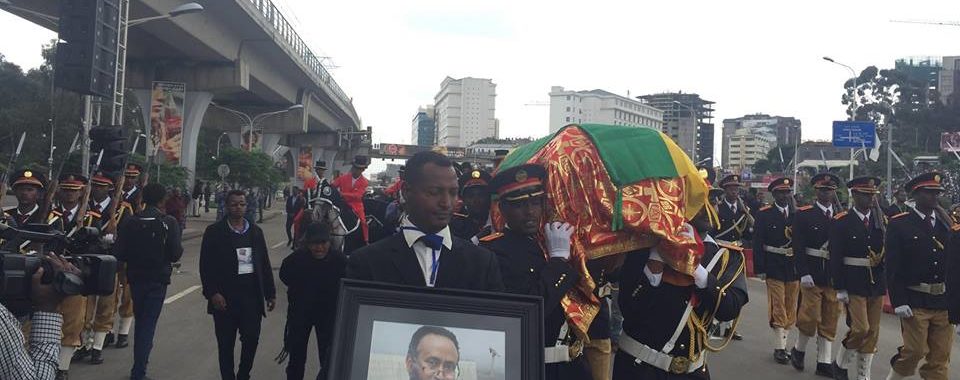The tense negotiations between Cairo and Addis Ababa over the repercussions of the Grand Ethiopian Renaissance Dam were complicated in July by a sudden development: the death of Simegnew Bekele, the dam’s manager and face of the project to the Ethiopian public.
The investigation into his death, whose preliminary findings were announced on Friday, has proceeded over the last month. In that time, the ballyhooed US$4.2 billion Ethiopian megaproject on the Blue Nile, paid for by taxpayer money and marketed to the public as vital to national development, has weathered a series of blows: a workers’ strike, rapidly rising costs, the ouster of the military-run Metals and Engineering Corporation contracting company due to unexplained technical problems, and a less-than-ringing endorsement from a prime minister who said the “project may never see the light of day” if delays continue.
Bring in Bekele, found dead behind the wheel of his Toyota Land Cruiser in Addis Ababa on the morning of July 26. A source in the Ethiopian government tells Mada Masr that the project manager was facing threats immediately before he took his own life. Public sentiment hasn’t readily accepted the Friday announcement from Ethiopia’s Federal Police Commissioner Zeinu Jemal, in which he ruled out foul play in Bekele’s death, stating that the project manager had died by suicide.
“His death was a suicide due to a contact shot,” the police chief told reporters on Friday. “We found his fingerprints on the pistol and his vehicle locked.”
Jemal also announced that investigators collected Bekele’s phone transcripts and letters he had written to his family. “It sounded like he was saying goodbye to everyone,” he said.
The phone transcripts and letters have not been made available to the public.
The investigation has not concluded what could have driven the engineer to take his own life, but the police chief said Bekele had been under pressure from delays in GERD construction and the rising costs that were accumulating as a result. The investigation is ongoing, despite Friday’s announcement, according to Jemal, who also stated that any further findings will be revealed to the public at a later date.
However, these preliminary results have done little to stem rampant public speculation that draws connections between the death of the popular figure and several other aspects surrounding the dam, including Addis Ababa’s acrimonious relationship with Cairo over the time frame for filling the reservoir and rumors of corruption in the dam’s construction.
Against the backdrop of this speculation, an Ethiopian government source, who spoke to Mada Masr on condition of anonymity, says that Bekele had been under heavy pressure and threats from undisclosed government officials before his death, as he was trying to expose corruption related to the construction of the dam.
The late project manager was supposed to deliver a report that government officials had asked him to prepare at a news conference on the day he was found dead. The report was to address allegations of mismanagement, corruption and delays in the construction of the dam.
According to the source, officials had reviewed the report ahead of the press conference and “prepared it the way they wanted.” It is not known what changes were made, however.
Different stripes of the Ethiopian public have also expressed doubt regarding the Friday announcement.
“There is something fishy. I see lack of openness and clarity from authorities over his death. I still feel our hero has been murdered and we ask authorities to stop hiding information from the public,” Kassa Nega, a 42-year-old politician in the ruling Ethiopian People’s Revolutionary Democratic Front, tells Mada Masr.
“I doubt the engineer who has been at the forefront of motivating the Ethiopian people to complete the dam would take his own life,” college student Solomon Nahom says.
Following his death, a number of protests were staged demanding an explanation into the cause of his death.
According to Ethiopian government figures, the massive dam, which would be Africa’s largest and is being constructed in the Benishangul Gumuz Region near the Sudanese border, is currently 65 percent completed. Upon completion, the dam will be able to produce 6,450 megawatts of hydroelectricity.
Ethiopia is constructing the GERD on the Blue Nile, a tributary that supplies approximately 59 percent of Egypt’s annual share of Nile water, which Egyptian officials continue to claim is insufficient to cover Egypt’s basic needs.







































